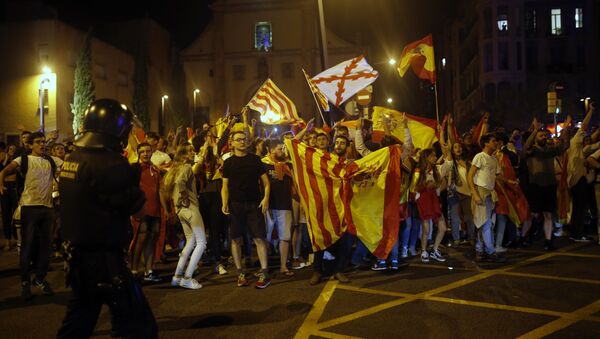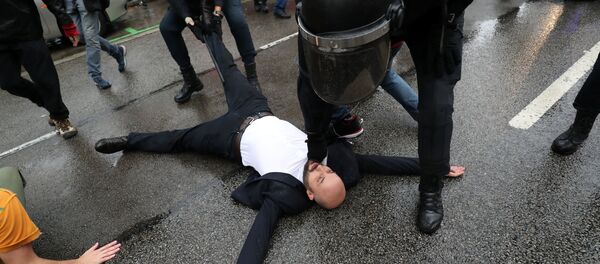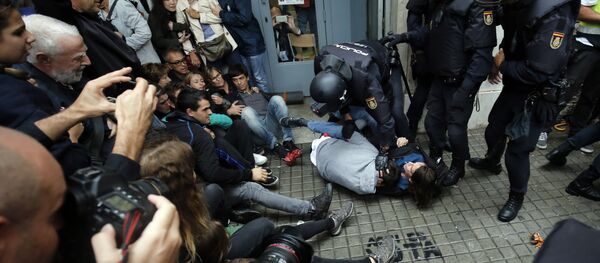"In chess, a player moving the king piece means that he is facing problems. In our case, the appearance of King Felipe VI shows how badly the government of Mariano Rajoy needs a certain consensus with political forces," Actis told Sputnik Mundo.
In this sense, the remarks of the King, who addressed the Catalan issue for the first time in his speech, can be perceived as an attempt to "strengthen the thesis of the central government" on "protecting the rule of law and Spain's unity," according to Actis.
According to Aktis, both sides "stand on extremist positions, and no one wants to show weakness."
He said that after the completion of the referendum and preparations for the secession, Carles Puigdemont's government took "an irreversible step," and if the Spanish government applies Article 155 of the Constitution, this will also be "a dangerous and irreversible step."
Article 155, which has never been invoked in the 39-year modern history of post-fascist Spain, stipulates that if one of the country's autonomous communities "fails to fulfill the obligations imposed by the Constitution and other laws, or if its actions pose a serious threat to Spain's common interests," the government "can take necessary measures to force" the region to stick to its obligations.
"Both the Spanish and the Catalan government have reached an impasse. I think they will both lose in the face of a possible aggravation of the conflict, "Actis said, adding that the parties need to establish a negotiating space, possibly with the participation of a third party.
Commenting on King Felipe VI's speech, Actis said that it "tries to draw attention to the fact that the independence of Catalonia, which should sever ties with Spain and the European Union, will lead to an economic crisis, both for Madrid and for the anticipated future of the Catalan state."
"The central government's reluctance to recognize a spate of claims led to the fact that the independence movement has taken unprecedented scale," he added.
Actis also touched upon the violent police crackdown after the October 1 referendum, saying that "each new brutal act of the Spanish police is thought to be followed by the emergence of a new fighter for the freedom of Catalonia."
"This is an alarming sign for the international community, because violence shows that the [Spanish] government continues to lose legitimacy, especially on the territory of Catalonia, and that the government has no other choice but to resort to force," he concluded.
"Today, Catalan society is fractured and confronted," the King said, later calling the clashes after the referendum "very serious moments for [Spain's] democratic life."



